Crafting a Better Tomorrow for Cats: Oregon Veterinary Referral Associates Now Offers Hyperthyroidism Care
What is Hyperthyroidism?
Feline hyperthyroidism is a pervasive hormone disorder that affects older cats. It is caused by overactive thyroid glands that produce excess thyroid hormone. Having Hyperthryroidism speeds up the body’s metabolism, which leads to weight loss, gastrointestinal issues, and heart and blood pressure complications. Diagnosing and treating hyperthyroidism is critical for helping cats regain their health and live comfortably into their senior years.
What is I-131 Therapy?
Radioiodine therapy (I-131) treatment is a well-established and highly effective therapy (considered the Gold standard) option and has a success rate approaching 95-98% for hyperthyroid cats with only one treatment. The radioactive iodine is administered as an injection and absorbed by overactive thyroid tissue, destroying abnormal cells while leaving healthy tissue unharmed. Within a month, the remaining normal thyroid glands resume hormone production to restore balance. I-131 Therapy is a precise, targeted treatment that improves the quality of life for hyperthyroid cats.
FAQS
FREQUENTLY ASKED QUESTIONS ABOUT I-131 THERAPY FOR HYPERTHYROID CATS
What are the treatment options for hyperthyroidism?
The three primary treatment methods for hyperthyroidism are surgical removal of the problematic thyroid gland, Tapazole (methimazole) medication, or radioiodine therapy. Surgery comes with its challenges, including anesthesia-related risks and potential damage to the parathyroid gland. There’s also a possibility the condition might come back. Using Tapazole can lead to side effects like vomiting, skin rashes, and liver and bone marrow complications. If a cat is on Tapazole, it’s crucial to regularly check their blood and be prepared for the associated yearly costs.
What are the success rates for I-131 treatment?
I-131 therapy successfully treats hyperthyroidism in 95-98% of cats with just a single procedure. It allows cats to regain normal metabolism and energy levels. For most kitties, it offers a lifelong cure. In uncommon instances (less than 5%), some cats might need another treatment or could develop an underactive thyroid, necessitating daily thyroid hormone supplements. Rarely, retreatment is needed due to recurrent disease.
Why does my cat need to stay at the vet clinic for several days after receiving I-131?
By law, cats must remain hospitalized after I-131 therapy until their radiation levels decrease to a safe amount. The radioactive material is excreted primarily through the urine and feces. While hospitalized, a trained staff member and a veterinarian will monitor your cat daily. All medications will be administered as needed. Unfortunately, no personal effects can be returned, so we suggest not bringing cat toys or bedding. Also, by law, we cannot allow visitation until your cat is ready for discharge.
What special precautions are needed when my cat comes home?
You will receive detailed written instructions that include limiting extensive contact (especially with children or pregnant women), washing hands after handling your cat or their litter box, and disposing of litter box waste for two weeks after discharge. Your cat will also need to remain indoors during that time.
Will my cat experience radiation sickness from I-131 treatment?
No, I-131 is administered like a shot, so there is no radiation sickness. It is a safe and commonly used treatment in feline and human medicine.
How do I schedule I-131 therapy for my cat?
Please talk with your veterinarian about your cat’s case and whether they are a good candidate for I-131. Oregon Veterinary Referral Associates is a referral-based hospital, which means we work closely with your veterinarian to provide the best possible care for your cat.


